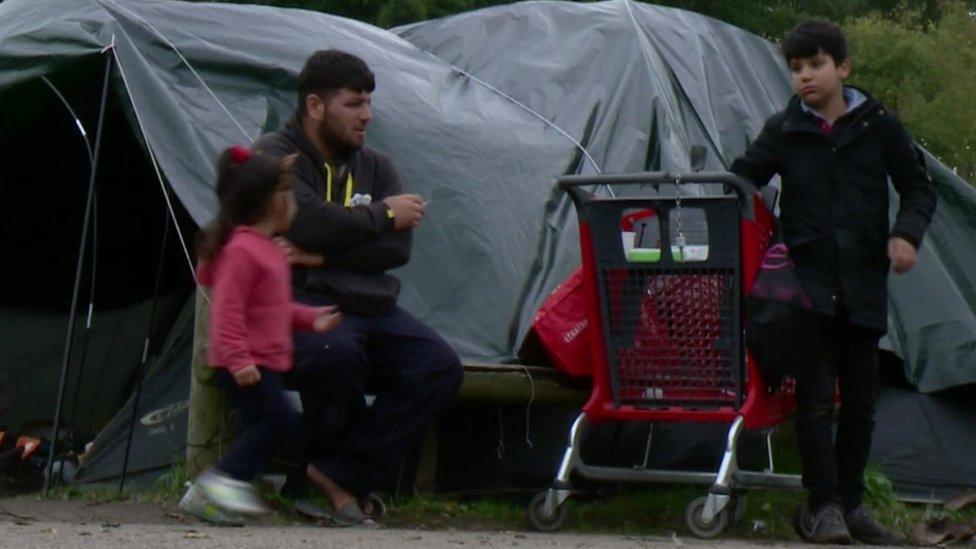Essex lorry deaths: The deadly people-smuggling trail leading to France
- Published
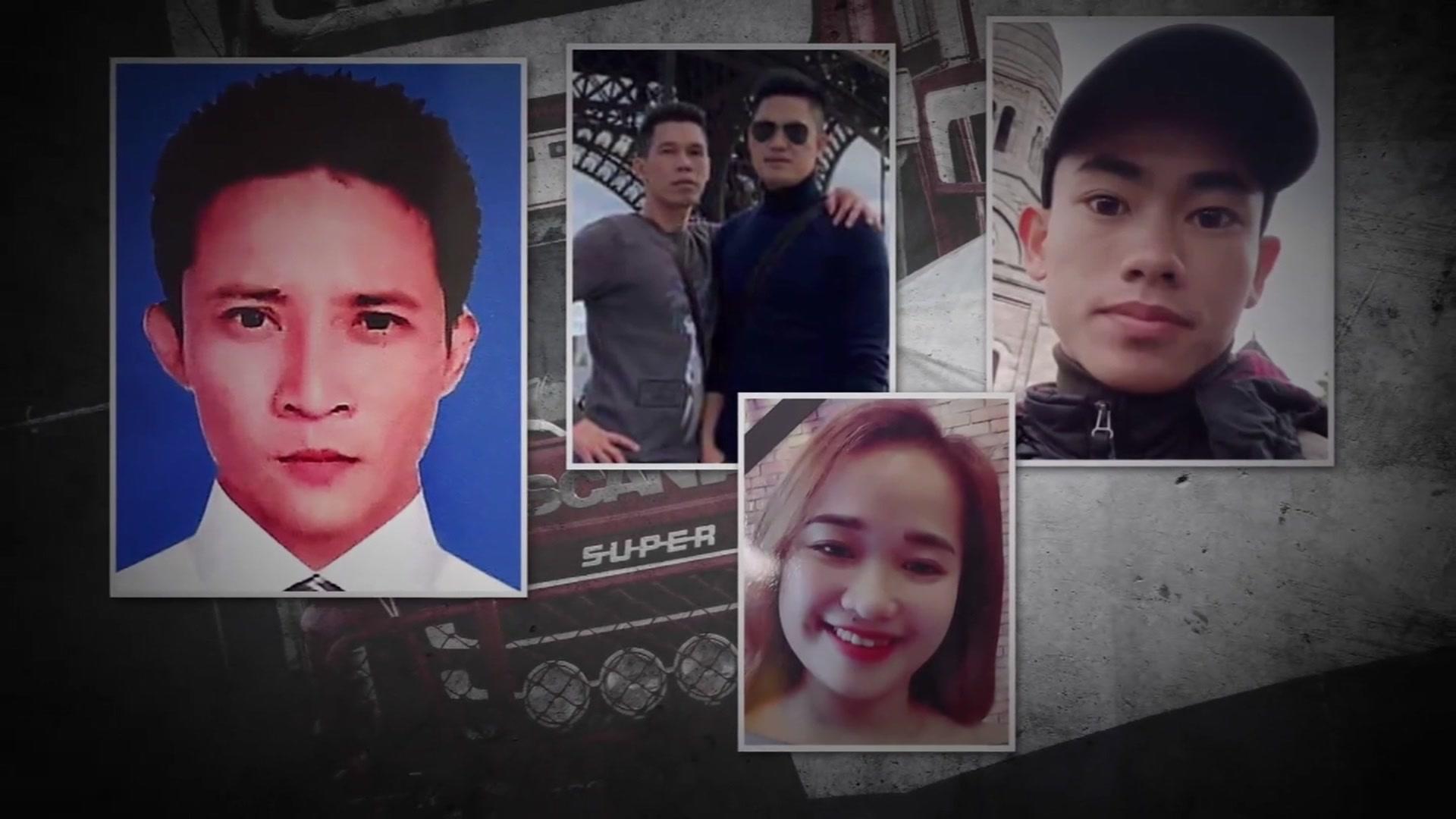
Details of some of those missing, feared dead in the lorry, are gradually emerging
Stories and photos of those thought to have died in the refrigerated lorry found in England last week often lay a trail back through France.
Like Nguyen Van Hung, who was last seen leaving Marseille for Paris.
His father in Vietnam told us he had got a phone call from the "organisers" at 07:00 Vietnam time, just after the lorry had arrived in the UK.
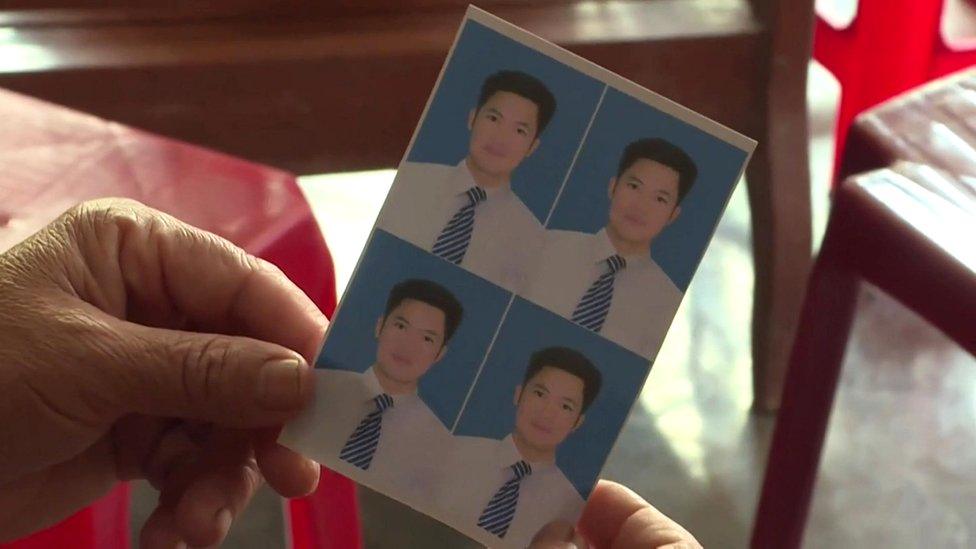
Nguyen Van Hung's father had been promised a phone call as soon as his son had crossed the Channel
They said his son would soon call him, after which the balance of £10,000 ($12,900; €11,500) must be paid.
No call came. And when Hung's father tried to call them back, the number was not working.
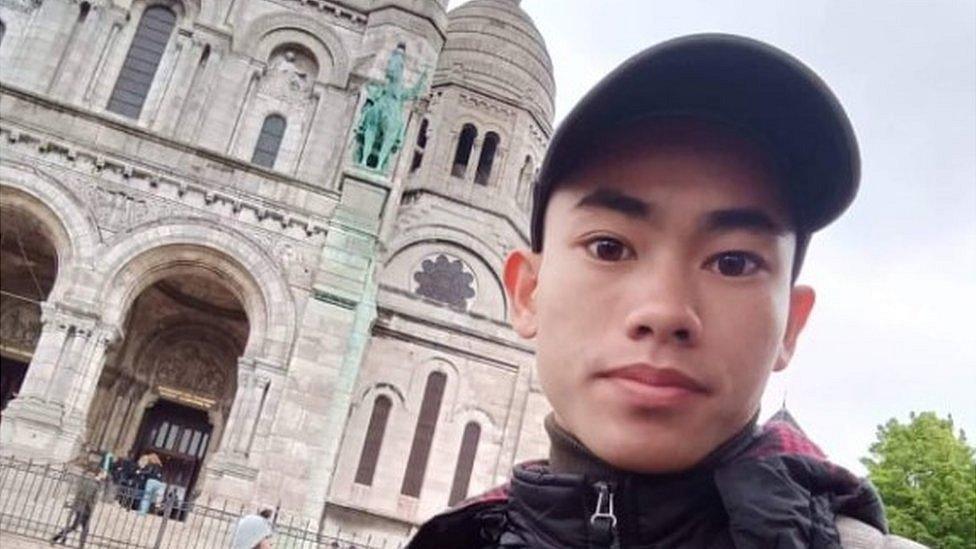
Nguyen Dinh Luong has been named by relatives as a possible victim
Nguyen Dinh Luong had also been living in France for the past 18 months, working in a Paris restaurant. Ten days ago, he called his relatives in Vietnam to tell them he was leaving for the UK.
His father told us he had tried to stop him.
Last week, with Luong still missing, doctors took blood samples from the family.
A Vietnamese man who had taken the same illegal journey from Zeebrugge in Belgium to London last week told us he knew 12 of those thought to have died. He did not want us to reveal his identity.
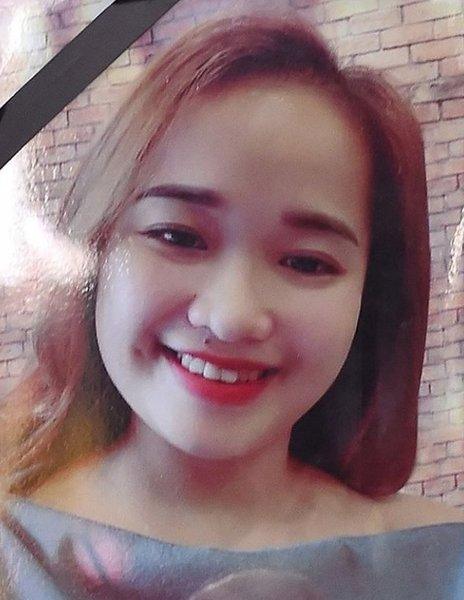
Bui Thi Nhung is among those missing

"I left for the UK a day before the 39 people who died," he said via Facebook from the UK. "There were seven people in my lorry. It was not refrigerated so breathing wasn't a problem."
He said he had travelled from Vietnam via Russia, where he lived in a warehouse for a month, before crossing woodland, arriving in Germany, and then in France.
"I came to the UK to find a job," he told us. "But now I'm in shock and I can't do anything."
Read more on this story from Lucy:
France is a bottleneck in the smugglers' network. It's seen as a springboard to London, but while it is easy to get to France from Germany, Belgium or even Poland, it is much harder - and more expensive - to make it from here to the UK.
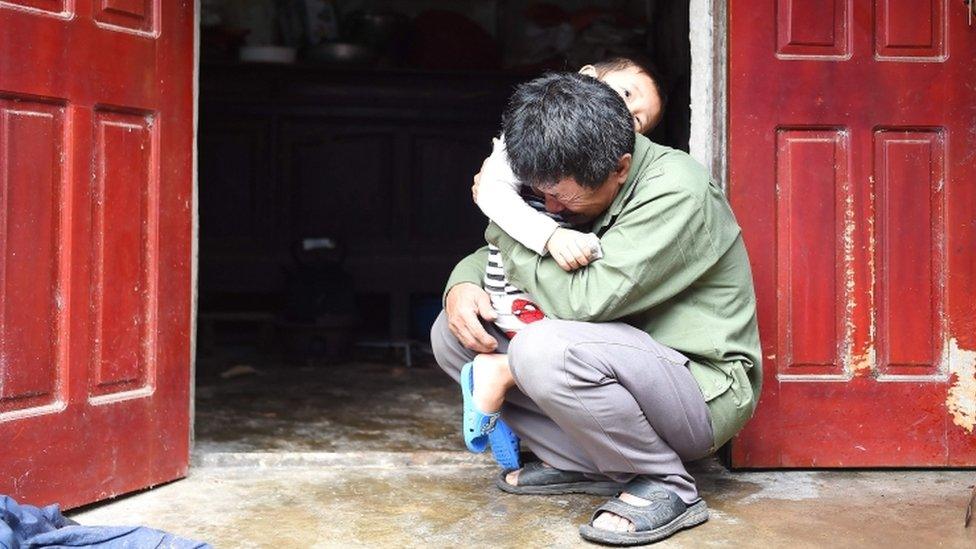
Le Minh Tuan, pictured here, fears his 30-year-old son, Le Van Ha, was among the dead in Essex
"The boarding places change all the time," says Thi Hiep Nguyen, one of France's leading experts on Vietnamese trafficking. "It's quicker if they can find a truck that's going directly from Belgium or Germany, and they can avoid Paris. But only the richest can afford to go that way."
Hiep's report into the networks here quotes a Vietnamese smuggler, arrested in France in 2012, who said the money went to a "big boss" in Paris.
"They're not just in Paris, they're everywhere," she told me. "There are bosses in every country in Europe, including the UK. There are a lot of them around Paris. They change location all the time, but generally around the southern suburbs."


Police have sometimes received tip-offs about trafficking hostels.
Last year, French media reported the discovery of 24 Vietnamese migrants locked inside a shuttered building in the Paris suburb of Villejuif. All but two of them were women and children.
Hiep says more than half of those found dead last week are thought to be from one small area in Vietnam, though no identities have yet been confirmed.
They could not pay for the most expensive kind of crossing, she says. They did not have that kind of money. They paid with their lives instead.
Thirty nine bodies were found in the trailer container
- Published26 October 2019
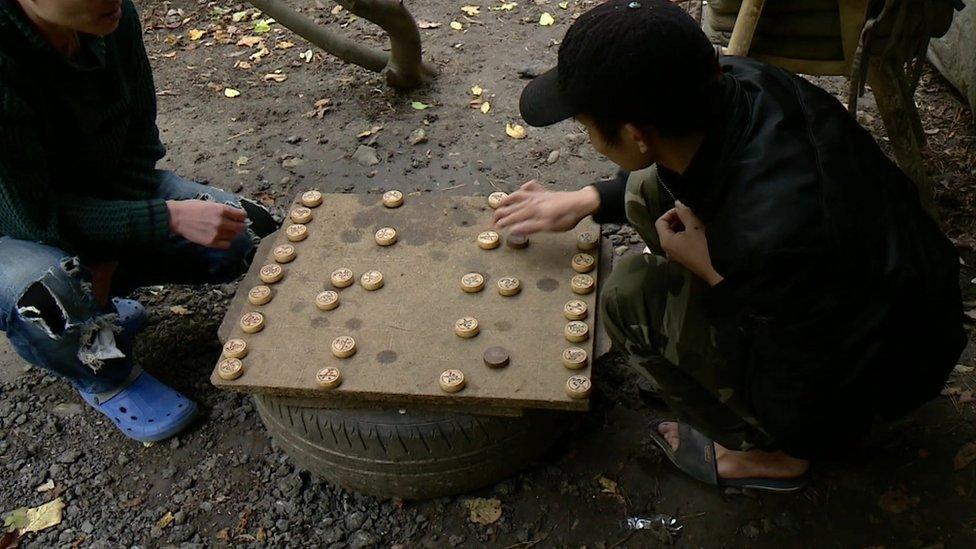
- Published24 October 2019
